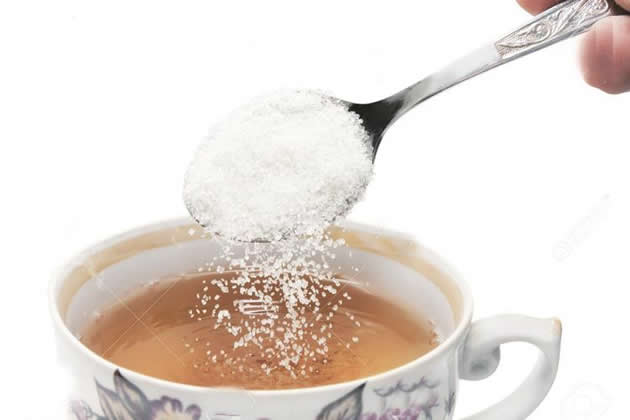Sweet tooth: Our longing for sugar


While taking a lot of sugar was once viewed as a sign of affluence, the practice has many health challenges
Sekai Nzenza On Wednesday
When our Mapositori relatives were leaving my house after a few days, they asked for the remaining two packets of sugar. Since I did not eat sugar anymore, I willingly and generously gave it to them, apologising that I had not thought about giving it to them before they asked.
My cousin Piri gave me a very unpleasant look, but I ignored it.
After all, it was my house and my sugar, not hers.
There was a time when sugar was scarce. That was the time we lived in the village homestead, long before independence. We saw and tasted sugar mostly at Rhodes and Founders Holiday or Christmas and New Year.
We loved sugar. It was a sign of affluence to have sugar in the house.
Among the people who regularly drank tea each morning were Government workers like teachers, agricultural officers, environmental health people, nurses and policemen. The District Assistant who worked in the Native Commissioner’s office also drank tea with plenty of sugar every day.
Some farm workers received sugar as wages.
At boarding school we took sugar and added water to it, calling it a cool drink. Sometimes we left the sugared water in a metal cup outside.
In the morning, the water was frozen and we ate the ice and called it ice cream even though there was no cream. It was just ice and water. We had never seen ice cream before.
My grandmother, Mbuya VaMandirowesa, always kept a packet of sugar hidden in a claypot.
Sometimes the packet was full and sealed. Most times, it was half full or a quarter. But it was always there.
The claypot was covered by a broken piece of another claypot. This packet of sugar was Mbuya VaMandirowesa’s treasure.
Nobody dared to go into the granary and taste her sugar. Mbuya kept the keys to the granary attached to a bark string around her neck in case someone went in there and stole her sugar.
She would sneak in when no one was looking, take a couple of mouthfuls then come out saying she was feeling a lot stronger in her joints because sugar healed everything.
We believed her and longed to have a whole packet of sugar to ourselves one day.
“When you come back home from the farms, bring me some sugar,” Mbuya said, whenever she was saying goodbye to the uncles leaving to go and work on the whiteman’s farms as seasonal workers.
My uncles went there to pick tobacco and grade it. Then they came back after some months carrying boxes of white sugar, cooking oil and bread.
There was a party in the village compound because big jugs of tea were made.
Several cups of sugar and condensed milk poured in. Then we all sat on the mat with a big winnowing basket in the middle full of sliced bread smothered with Stork margarine and Sun jam.
We dipped the bread in the tea, just to taste the wet sweetness of bread, butter and syrup like tea.
One day, Mbuya’s half pack of sugar went missing from the granary.
Someone had gone to collect millet in there and forgot to lock the door.
By the time Mbuya saw her granary door ajar, she rushed to check for her sugar. It was gone.
Then she stood in the middle of the village compound calling all the grandchildren.
She lined us up and inspected our mouths, teeth, hair, hands and everywhere to check for grains or pebbles of sugar.
She found nothing on all 10 or more of us. Then she went from one village hut to the other, asking my uncle and aunts if they had seen the thief who dared enter her granary.
Everyone shook their heads. Mbuya swore and hissed in anger, shouting that she would catch the thief.
The following day, we saw the empty packet of Mbuya’s sugar lying around near the goat pen at the edge of the village compound.
The sugar thief had not travelled far to eat all the sugar.
Sabhuku, the village headman, sent his footmen to investigate because it was unacceptable to enter into anyone‘s granary.
This was a sacred place where grain and other private belongings or medicine were kept. Who had dared to go into our grandmother’s sacred place?
It was later discovered that the sugar had been stolen by Panichi, the village rebel.
A village court was held at Sabhuku’s house and Panichi’s parents were fined a whole goat because they had failed to give good discipline to their child.
After the theft incident, Mbuya moved her sugar from the granary to another place.
We never knew where, but occasionally, we saw Mbuya carrying a cup of sugar.
When it ran out, she travelled to Mr Jack’s store with my mother to trade in their groundnuts for sugar.
My father tried to convince Mbuya that sugar was not important and we could live without it.
He said that a European missionary called Mr Neil had told him that sugar caused rotten teeth and general bad health.
Not only that, sugar was responsible for the slave trade because Africans were captured to work in the sugar plantations in America.
But Mbuya was not interested in all this. How something so sweet can be bad for you? she asked.
If it was so bad, why did the white man create it?
My father tried to reason with Mbuya, reminding her of the labour involved in growing ground nuts then exchanging them at Mr Jack’s store for packets of sugar.
Mbuya worked hard for her sugar.
For weeks, she did the ploughing, weeding and then waited until the nuts were ready to be pulled out.
Then she pulled the ground nuts and piled them on a rack to dry.
Once dry, we sat under the shade of a tree and separated the nuts from the main plant, kutanhaura nzungu.
We left them to dry. Then we spent more hours shelling them. That done, Mbuya and the other women travelled 10 kilometres to Mr Jack’s store across Chinyika River.
Mr Jack, murungu, had many stores around the district.
His manager was called Gwidiba, the ugly man, whose job was to weigh the groundnuts on a scale.
He hardly spoke to anyone even if they came from his village.
One 20-litre tin of ground nuts was the equivalent of two packets of 2kg sugar.
Then Mbuya and the women went into the store and admired the petticoats and underwear with laces which they could not afford. When they came back with their packets of sugar, my father tried again to tell Mbuya that exchanging groundnuts with sugar was an unfair transaction.
It’s been many years since we left the village to move to the city. As we become more and more depended on Western type of food, we are eating sugar in various forms every day.
The sugar is already added to the food we eat in the bread for hamburgers, in yoghurt, ice-cream, chocolates, juices and so on.
Sugar is everywhere now. We do not go looking for it. In the supermarket, they put sweets at the checkout so you can grab some.
Years later, I stopped eating sugar. It was not exactly a personal choice to stop adding sugar to my tea. No. When I was in America, I remember going out to a seminar and at tea time, I noticed that someone had forgotten to bring the sugar.
But all the participants seemed to carry on drinking their tea and coffee without looking for sugar.
I figured out that asking for sugar then adding my three full teaspoons while being watched by some of my colleagues would be embarrassing.
I pretended that I did not take sugar either. Drinking that tea without any sugar at all was an unpleasant experience. Then the same incident happened again at another meeting.
This time, I had the courage to ask for sugar. Everyone looked at me and a very nicely dressed English lady said, “Oh, you take sugar?” I said, yes, just one spoon.
This was not true either.
I had only recently moved from four teaspoonfuls to three.
The lady said, “You really ought to stop taking sugar, you know.”
While everyone was listening, she explained that sugar was “toxic” and not good for people’s health.
The amount of added sugar consumed in so many processed foods was linked to many chronic diseases such as heart disease, cancer and type two diabetes. After that unsolicited lecture, I stopped taking sugar in my tea.
“Can you buy some sugar when go to the shops?” Piri asked. I said, no, too much sugar was not good for her or for anyone.
Dr Sekai Nzenza is an independent writer and cultural critic.









Comments